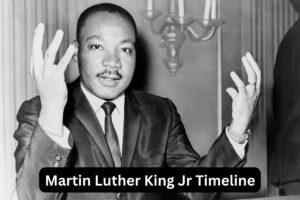Celebrating Black History

Black History Month is a critical time for reflection, celebration, and education. Established to honor the achievements and contributions of African Americans, this month serves as a reminder of the resilience and brilliance of Black individuals throughout history. Originating in the United States as Negro History Week in 1926 through the efforts of Carter G. Woodson, it evolved into a month-long celebration in 1976. Today, Black History Month extends beyond American borders, observed in countries like Canada, the United Kingdom, and others. By dedicating this time to exploring Black history, we not only honor the past but also inspire future generations to continue striving for equality and justice.
Quality is much better than quantity. One home run is much better than two doubles.
The story of Black history is deeply intertwined with the global narrative of struggle, resistance, and triumph. The transatlantic slave trade, spanning the 16th to the 19th centuries, forcibly displaced millions of Africans, stripping them of their homelands and freedoms. In the Americas, enslaved individuals endured unimaginable hardships, yet they resisted through uprisings, cultural preservation, and acts of everyday defiance.
The abolition of slavery in the 19th century marked a significant turning point, but systemic racism persisted through segregation, disenfranchisement, and discriminatory laws. The Civil Rights Movement of the mid-20th century, led by figures like Martin Luther King Jr., Rosa Parks, Malcolm X, and countless unsung heroes, challenged these injustices. Their courage and tenacity paved the way for legislative victories such as the Civil Rights Act of 1964 and the Voting Rights Act of 1965.

Black history is not only a tale of struggle but also one of immeasurable contributions to global culture and innovation. In literature, figures like James Baldwin, Maya Angelou, Zora Neale Hurston, and Toni Morrison have shaped the literary canon with works that explore identity, race, and humanity. Their voices resonate with readers worldwide, offering profound insights into the Black experience.
Music is another realm where Black artists have made transformative contributions. Jazz, blues, gospel, and hip-hop are deeply rooted in African American culture, influencing global music trends. Legends like Louis Armstrong, Aretha Franklin, Nina Simone, and Tupac Shakur used their art to express joy, pain, and resistance, leaving indelible marks on music history.
Visual arts, too, showcase the creativity of Black individuals. Jacob Lawrence’s “Migration Series,” Jean-Michel Basquiat’s neo-expressionist works, and the photography of Gordon Parks reveal the richness of Black artistic expression. These contributions continue to inspire new generations of artists.
In sports, trailblazers like Jackie Robinson, Muhammad Ali, Serena Williams, and Simone Biles broke barriers and set new standards of excellence. Their achievements transcend the realm of sports, symbolizing the perseverance and talent of Black individuals.
Despite significant progress, challenges remain. Systemic racism, economic disparities, and social injustices continue to affect Black communities. The Black Lives Matter movement, sparked by the tragic deaths of individuals like Trayvon Martin, Breonna Taylor, and George Floyd, underscores the ongoing fight for racial equity.
However, the present era is also marked by extraordinary Black achievements. Entrepreneurs like Oprah Winfrey and Daymond John have become symbols of success, while leaders like Barack Obama and Kamala Harris have redefined political possibilities. In STEM fields, individuals like Dr. Mae Jemison and Dr. Gladys West have made groundbreaking contributions, proving that Black excellence knows no bounds.
Educational Importance
Education is a cornerstone of Black History Month. By integrating Black history into school curricula, we ensure that the achievements and struggles of Black individuals are recognized as integral to the broader historical narrative. Efforts to highlight the stories of lesser-known figures, such as Henrietta Lacks, whose cells revolutionized medical science, and Claudette Colvin, a pioneer of the Civil Rights Movement, enrich our understanding of history.
Year-round inclusion of Black history in education fosters empathy and a deeper appreciation of diversity. It challenges stereotypes and equips students with the knowledge to combat prejudice, making it an essential part of fostering a more inclusive society.

While Black History Month originated in the United States, its significance resonates globally. The African diaspora has left an indelible mark on cultures worldwide, from the Caribbean to Europe, South America, and beyond. Countries like the United Kingdom and Canada have adopted their own versions of Black History Month, recognizing the contributions of Black individuals to their national histories.
In Africa, the celebration takes on a different dimension, honoring the continent’s rich heritage and the resilience of its people in the face of colonization and exploitation. Across the globe, Black History Month serves as a unifying force, highlighting the shared struggles and triumphs of people of African descent.
Be a yardstick of quality. Some people aren’t used to an environment where excellence is expected.
Celebrating Black History Month can take many forms, from community events to personal acts of education and advocacy. Local organizations often host events featuring guest speakers, panel discussions, and cultural performances. These gatherings provide opportunities to learn, connect, and celebrate.
Supporting Black-owned businesses is another meaningful way to honor the month. By investing in these enterprises, we contribute to economic empowerment and the growth of Black communities.
Reading books by Black authors, watching films that explore Black stories, and engaging in discussions about race and history are excellent ways to deepen understanding. Sharing these experiences with friends and family can create ripple effects, spreading awareness and inspiring action.

Black History Month is a time to honor the past, celebrate the present, and envision a brighter future. It reminds us of the resilience, creativity, and brilliance of Black individuals who have shaped the world we live in. By embracing the lessons of history and committing to justice, equality, and unity, we ensure that the legacy of Black History Month endures for generations to come. Let this month be a call to action, inspiring us all to build a society where every individual is valued and every story is heard.









